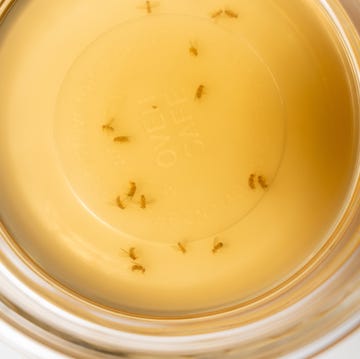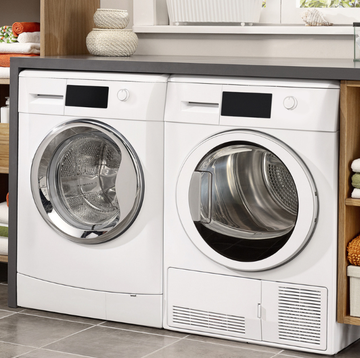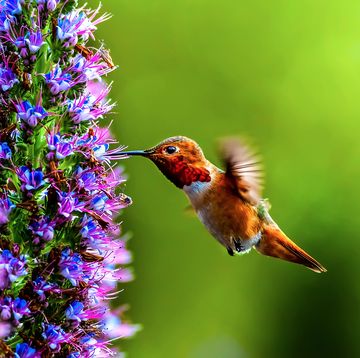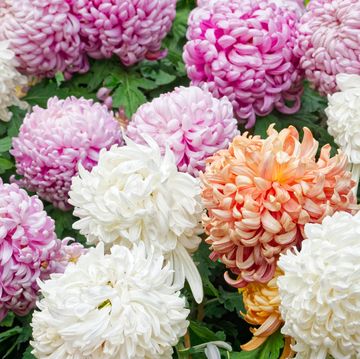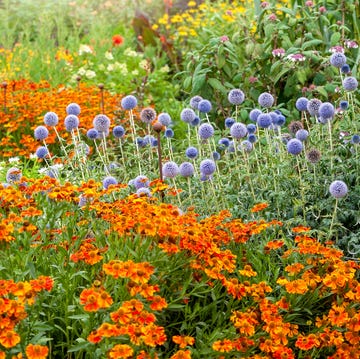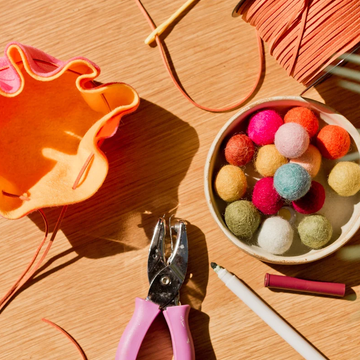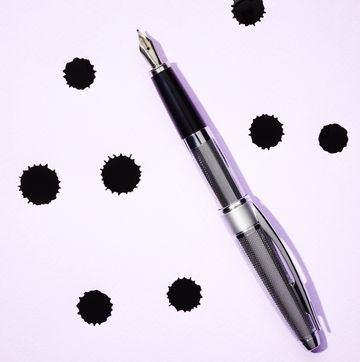1Monstera Deliciosa
 Nora Carol Photography//Getty Images
Nora Carol Photography//Getty ImagesLoved for their large, heart-shaped leaves, these stunning plants, also known as the "split-leaf philodendron," can help tap into the marriage and relationships area of your space. With plenty of indirect light and the right amount of watering, the monstera plant is easy to please.
2Money Tree Plant
 AYImages//Getty Images
AYImages//Getty ImagesThe money tree’s name actually derives from feng shui practices, encouraging the belief that it will bring positive energy and good luck to the plant owner and space, says Pangborn. This plant can thrive in indirect light, needs only infrequent watering and works perfectly for smaller living spaces. According to Pangborn, its presence has also been said to reduce stress and anxiety.
Advertisement - Continue Reading Below
3Philodendron Green
 Westhoff//Getty Images
Westhoff//Getty ImagesWith quick-growing vines and low-maintenance care, the classic philodendron plant makes a well-suited feng shui plant for channeling love. Its soft, heart-shaped leaves can help activate the marriage and relationships area of your space, according to Cho. For added effect, you may want to own two! "A pair of complementary plants can emphasize an equal, balanced partnership you'd like to invite in," she says.
4Pothos
 Tharakorn Arunothai / EyeEm//Getty Images
Tharakorn Arunothai / EyeEm//Getty ImagesPothos plants are excellent air purifiers, perfect for the neglected corners of your household like atop a kitchen cupboard or in the bathroom. They tend to have long, leafy vines that make them optimal indoor hanging plants. For forgetful green thumbs, these plants are incredibly low maintenance, even earning the nickname of Devil's Ivy for being near impossible to kill. According to Cho, these are great for beginners. They're one of the easiest feng shui plants to care for, and their soft, rounded leaves promote softness and harmony throughout your space.
Advertisement - Continue Reading Below
5Jade Plant
 Firdausiah Mamat//Getty Images
Firdausiah Mamat//Getty ImagesIn feng shui practices, jade plants represent good luck and fortune due to the plant’s round leaves. Pangborn recommends jade plants because they thrive in a sunny area and have low maintenance watering needs. They do best in bright indoor spaces — like a south- or west-facing window.
6Calathea Plant
 sarayut Thaneerat//Getty Images
sarayut Thaneerat//Getty ImagesThanks to their colorful, detailed striped leaves, these potted plants sit pretty on any windowsill and bring vibrance to your space. The calathea requires a little bit more maintenance than other houseplants, however. They walk a fine line between needing to be moist, but not saturated, and they cannot tolerate periods of dryness. Wilting or dying plants can invite negative chi, so be sure to properly care for your calathea. But if you're up to the challenge, it is known to be a great indoor air purifier and will reward you with stunning leaf coloration.
Advertisement - Continue Reading Below
7Lucky Bamboo Plant
 Veena Nair//Getty Images
Veena Nair//Getty ImagesEncourage personal growth and positive energy with this quick-growing lucky bamboo plant. Its gathered stalks can reach heights of about 16 inches, while ones potted in pebbles nurture root growth. Only bright-to-medium light is needed for bamboo to thrive, making it a great choice for office decor. As it effortlessly sprouts, it will inspire you to do the same.
8Snake Plant
 Dorling Kindersley: Rob Streeter//Getty Images
Dorling Kindersley: Rob Streeter//Getty ImagesThis potted plant's a real charmer: its two-toned design adds vibrant color to a space while its upward growth encourages good chi. A member of the succulent family, the snake plant is super easygoing — it can tolerate low light and drought!
Advertisement - Continue Reading Below
9Rubber Tree Plant
 Scott Webb / EyeEm//Getty Images
Scott Webb / EyeEm//Getty ImagesIf a small indoor tree for feng shui is on your radar, the rubber tree plant's thick, glossy leaves and purple stripes may fit the bill. Its gently curving leaves can soften harsh areas of your home. This tropical plant gets super thirsty, so water often to keep the soil moist at all times. It isn't very apartment-friendly, though, as it won't do well in low-light spaces.
What is feng shui?
Feng shui, an ancient Chinese art of arranging buildings, objects and space, looks to nature as a cue to find harmony and balance in an environment: Feng means wind and shui means water, according to Chan. It considers the layout and energy of your home along with your relationship to it in order to achieve ultimate harmony.
Advertisement - Continue Reading Below
How to choose the best feng shui plants
Keep a space's energy soft and harmonious by choosing a plant with healthy, rounded leaves, not dry or spiky ones. Chan recommends plants that grow upward, promoting the positive movement of energy. For example, bamboo grows quickly and easily, which translates to growth and prosperity in that area of your life, she says.
What is a bagua map?
 Good Housekeeping
Good HousekeepingFeng shui plants can be used in any area of your home, regardless of the bagua, says Cho. But if you would like to improve the energy in a certain part of your life, find that area in your home using the bagua map, then place an upward growing plant there. Set your intention that the plant's energy will help with growth and revitalize any potential "stuck" energy.
Pretend you're looking in at your space from the front doorway: the wealth and prosperity area is the far upper left of your home while the marriage and relationship area is the far upper right. Bonus points for adding a plant with heart-shaped leaves in the marriage and relationships space or a money tree in wealth and prosperity. Or, look for a plant or a pot that matches the color of that bagua area, says Cho. It will resonate even more within the space.

Jacqueline (she/her) was a commerce editor for Good Housekeeping from 2021 to 2024. Prior to joining GH, she was a style and beauty reviews fellow at Insider, testing viral trends, reviewing sustainable brands and more. She's a graduate of the University of Florida's School of Journalism, with a specialty in magazines and mass communication.
Advertisement - Continue Reading Below
Readers Also Read
Advertisement - Continue Reading Below
Advertisement - Continue Reading Below




